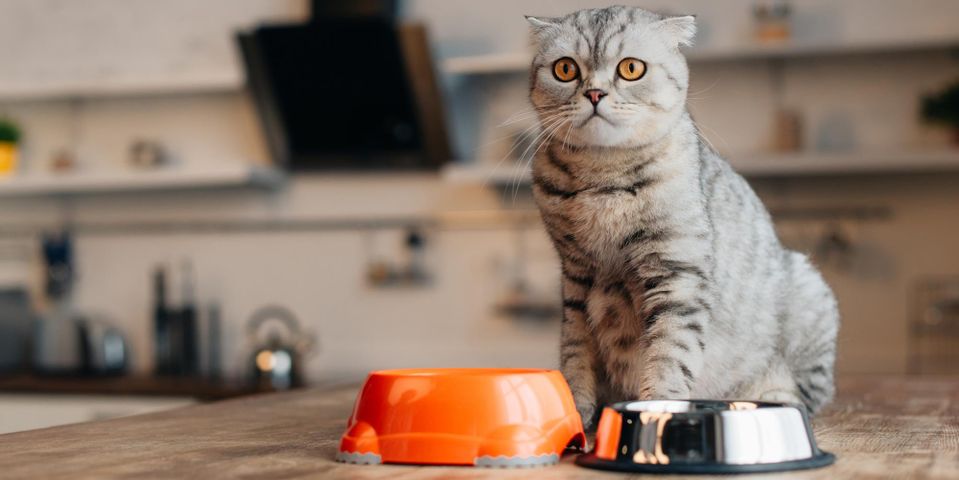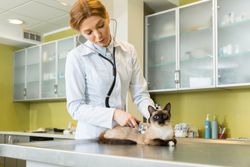
If you’ve noticed changes in your cat’s behavior, litter box habits, or appetite, your companion is likely having gastrointestinal issues. Stomach problems prevent food from fully digesting, causing your kitty to experience a range of symptoms, including vomiting and diarrhea. Here’s a closer look at common GI tract issues in felines that need the attention of a veterinarian.
5 Serious Stomach Issues in Cats
1. Tapeworms & Other Intestinal Parasites
Intestinal parasites cause diarrhea, vomiting, stunted growth, and weight loss without treatment. Tapeworms, which unlike other parasites can be seen on feline rectal areas, pass to cats who eat infected fleas or prey animals.
Roundworm transmission comes from consuming infected prey animals as well as eating infected fleas and suckling infected milk from the mother cat. Hookworms in dirt and feces attach to feline feet; they can also be transmitted from contaminated water or mother cat milk.
2. Colitis
Most common in felines under five years old, colitis inflames the large intestine, making waste elimination frequent and painful. You’ll likely notice blood and mucus in your cat’s stool.
Tumors, polyps, ingested foreign objects, food changes, allergies, intestinal trauma, pancreatitis, and certain diseases such as colon cancer cause colitis. As with intestinal parasites, colitis requires veterinarian care.
3. IBS
 Cats can experience irritable bowel syndrome as well as irritable bowel disease, with the former usually due to food allergies causing chronic intestinal inflammation. Irritable bowel disease combines food intolerances with other health issues, such as parasites, environmental stress, bacterial overgrowth, and metabolic disease. Both IBS and IBD worsen without a veterinarian-recommended treatment plan.
Cats can experience irritable bowel syndrome as well as irritable bowel disease, with the former usually due to food allergies causing chronic intestinal inflammation. Irritable bowel disease combines food intolerances with other health issues, such as parasites, environmental stress, bacterial overgrowth, and metabolic disease. Both IBS and IBD worsen without a veterinarian-recommended treatment plan.
4. Furballs
Every kitty endures the occasional furball, especially long-haired cats that typically shed more. However, frequent furballs can indicate larger issues such as excessive shedding from a skin infection or gastrointestinal inflammation from allergies or IBD. Consistent brushing, dietary changes, and hairball gels usually solve this issue.
5. Constipation
Lack of bowel movements can mean your cat is dehydrated, requires additional dietary fiber, or needs to exercise. If lifestyle changes don’t alleviate constipation, your veterinarian will need to rule out causes such as intestinal blockages from foreign objects, tumors, metabolic problems, or age-related complications.
If your cat is experiencing serious gastrointestinal symptoms and needs emergency veterinarian care, contact Westside Veterinary Hospital. Offering a full range of animal care in addition to standard services such as grooming, boarding, and microchipping, this animal clinic has served Statesboro, GA, and the surrounding areas for over 25 years. Call (912) 489-1998 today to make an appointment or visit the pet hospital online for a full service list.
About the Business
Have a question? Ask the experts!
Send your question

